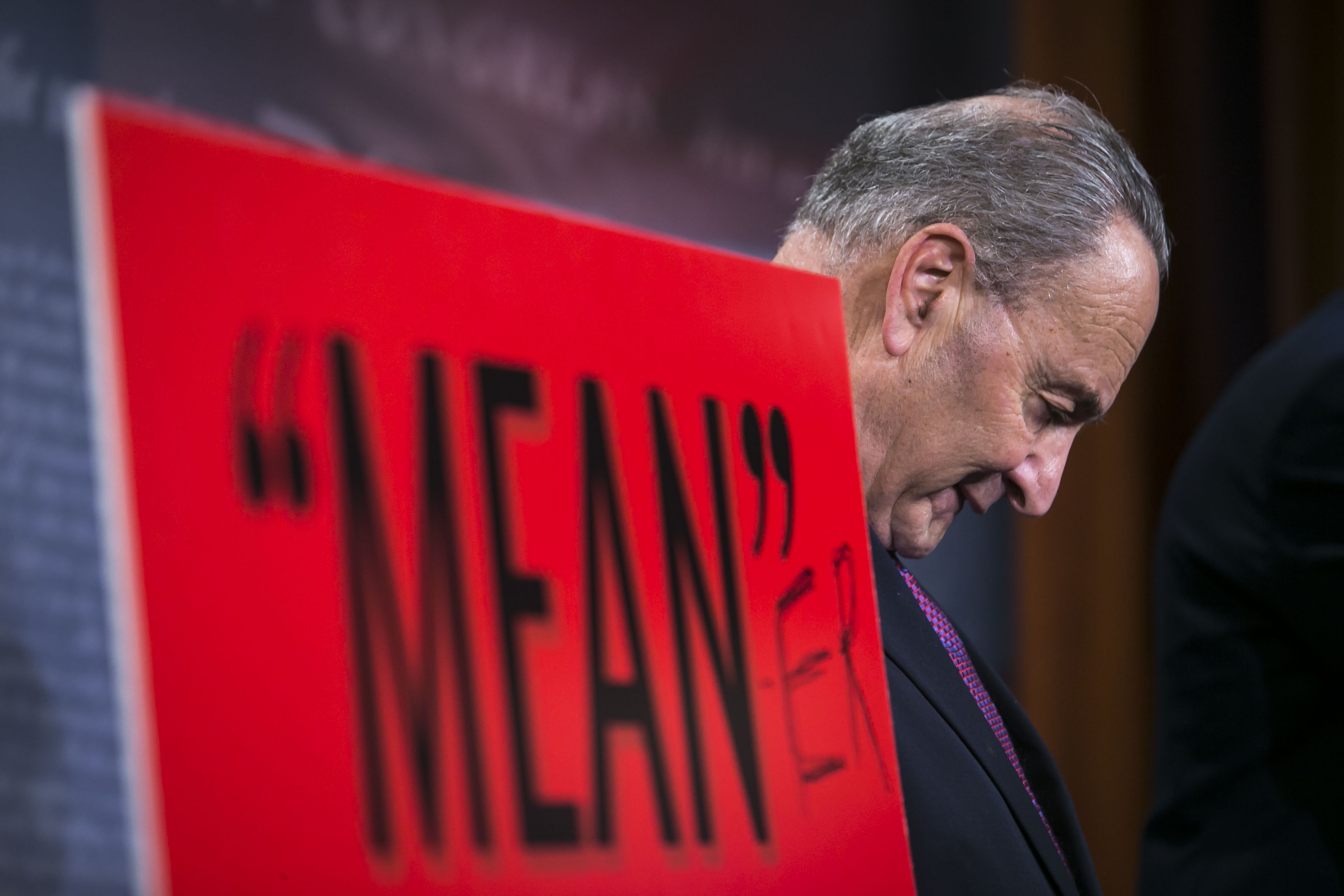The Senate health care bill - like the House health care bill - would rob from the poor and give to the rich.
Like the House bill passed several weeks ago, it's not a health care bill at all. It's a tax-cut bill.
And while it may fulfill the ideological dogma that passes for conservatism in the Republican Party these days, it is a far cry from the president's pledge of better, more affordable health care for all.
It strips coverage for mental illness because it removes the mandates to cover it. It limits access to addiction treatment. It lowers marketplace subsidies for private insurance and at the same time gives states the ability to shrink benefits. It allows insurers to charge older Americans in their 50s and early 60s up to five times what they charge younger people. It removes the requirement that individual plans cover maternity care. It allows states to rescind any cost-free birth control benefit. It partially defunds Planned Parenthood, even for non-abortion services.
It sort of keeps protections for pre-existing conditions. We say "sort of" because it also permits states to allow insurers to slash from their benefits things like insulin. Wouldn't that basically make insurance useless to folks with the pre-existing condition of diabetes? Nearly 15 percent of Tennesseans and Georgians have diabetes, and more than one in three people have prediabetes with blood glucose levels higher than normal, but not yet high enough to be diagnosed as diabetic.
By making deep, deep cuts to Medicaid - even deeper than those in the House bill - the Senate bill slashes the funding that pays for disabilities care and long-term nursing home care for the elderly with low incomes.
Medicaid is the federal insurance program that has covered those things for working and non-working people who made little money and who were not covered by workplace insurance. Medicaid helped pay for those things even before it was used to help pay for the Affordable Care Act, aka Obamacare. Medicaid is the nation's largest insurer, serving more than 70 million Americans - about one in five of us. It covers almost two-thirds of people in nursing homes, almost two-thirds of children with disabilities and a third of adults with disabilities. It also pays for 49 percent of all U.S. births - nearly 5,000 births a day.
But the Senate's bill, the Better Care Reconciliation Act of 2017, rolls back all of the Medicaid help for the ACA and then cuts into Medicaid even deeper with an $800 billion reduction and cap on future federal spending that limits increases only to cover inflation.
In other words, the only way state programs that use Medicaid in coming years would be able to accept new enrollees would be if existing patients either suddenly got well and went to work where an employer insures them (unless their pre-existing condition makes that insurance so outrageously expensive that they're better off not working) or they die.
But there are some big winners.
The wealthiest Americans and corporations will get big tax breaks - about $600 billion a year - with the elimination of the Affordable Care Act's taxes on them. A capital-gains tax cut for the most affluent Americans would be retroactive to the beginning of this year. The Senate bill also hands enormous tax cuts to the drug and insurance industries - along with what CNN Money calls a $50 billion "reinsurance fund" over four years to "give federal injections to insurers" - ostensibly to help them cover higher-cost enrollees.
Sen. Minority Leader Chuck Shumer, D-N.Y., called the bill "a wolf in sheep's clothing." But he added: "This wolf has even sharper teeth than the House bill."
Aside from the fact that the 142-page bill is cruel, mean, heartless and a scam, it also likely won't work.
The Huffington Post writes: "There's a ticking time bomb built right into the Senate Republican health care bill."
That time bomb is the same "death spiral" that the GOP incorrectly ascribed to the ACA.
The Senate bill aims (at least on paper) to preserve the ACA's popular rule forbidding insurers from rejecting people with pre-existing conditions while repealing the ACA's unpopular individual mandate that penalizes Americans who don't obtain insurance. It also scales back the financial assistance that now makes health insurance premiums affordable.
But take out one of the legs of that three-legged stool, and the whole thing falls over. The Senate bill pulls off one leg and chops at the two others. Keeping protections for pre-existing conditions means sicker people have access to health coverage and medical care, which is good for them but increases costs for everyone else. Without the mandate, healthy people forego coverage and don't help bring costs down. And without subsidies to make premiums affordable, still more people opt out - making the premiums still more expensive.
"In their attempt to appease public sentiment by keeping a widely liked thing, getting rid of a widely loathed thing and scaling back a poorly understood thing, Senate Republicans may have set up their own system to fail," the Huffington Post writes.
Of course, neither of the GOP bills really keeps the widely liked thing - coverage for pre-existing conditions. They leave that dirty work to the states that will be trying desperately to make ends meet.
The real scam is that this is not health care. It's GOP tax care.

